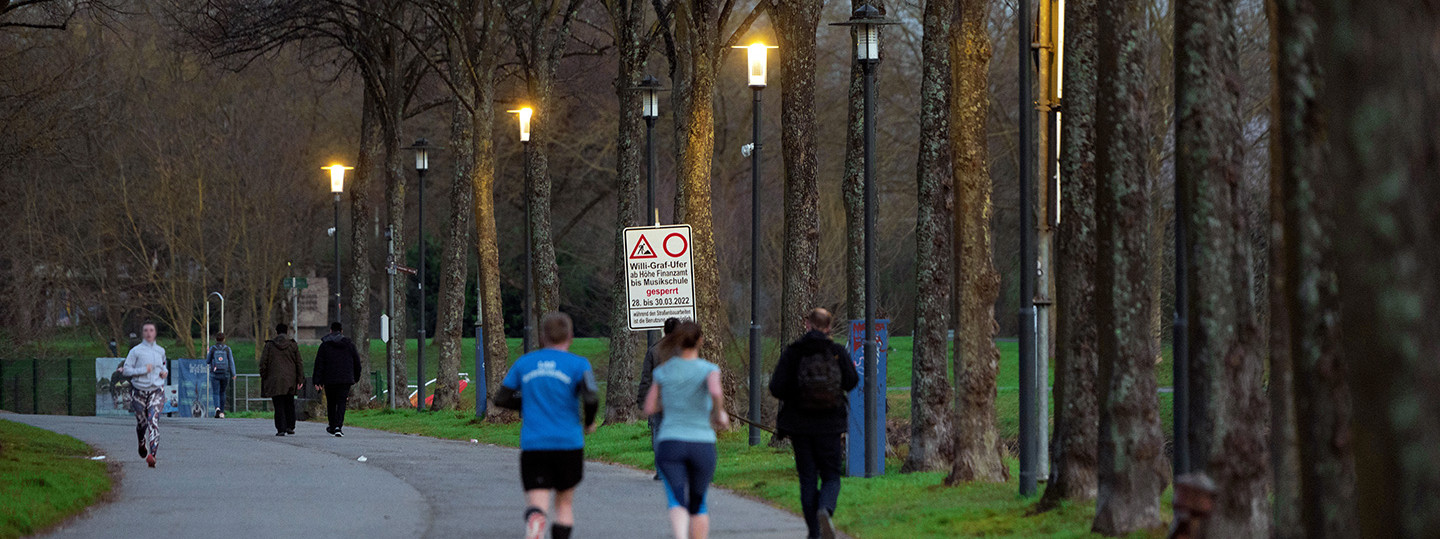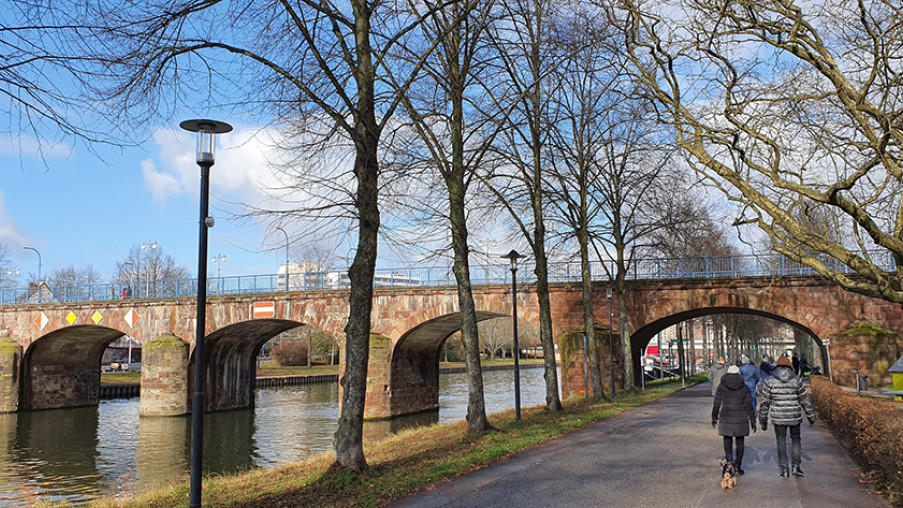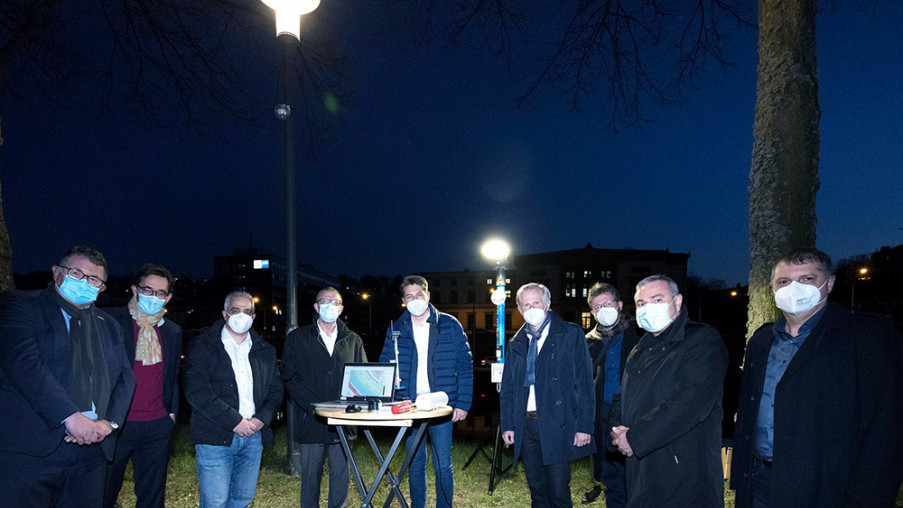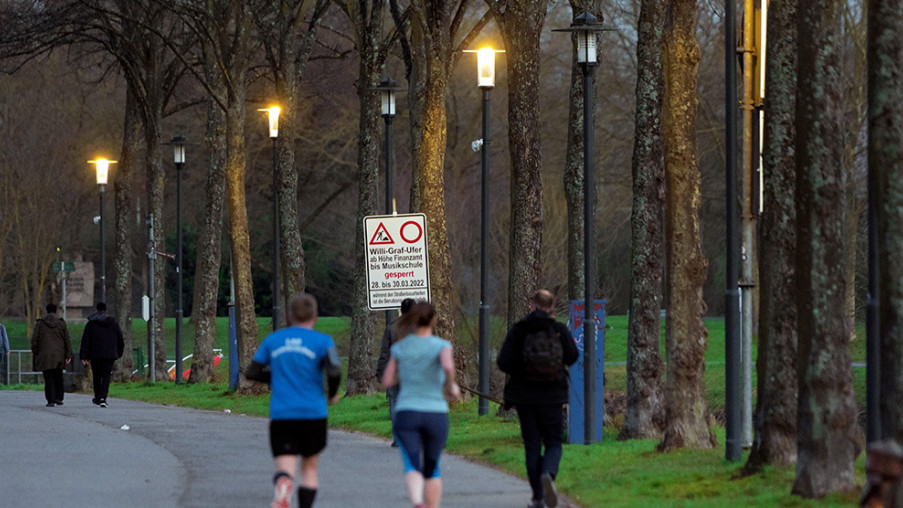
Intelligent street lighting: Saarbrücken on the way to becoming a Smart City
- Pilot project by ENGIE and co.met on the Saarpromenade successfully completed
- Intelligent street lighting increases safety in public spaces and reduces energy consumption and costs
Berlin/Saarbrücken - Following the start of the installation of a LoRaWAN network in 2018 by the municipal utility subsidiary co.met, Saarbrücken is taking the next step toward becoming a smart city. On an almost two-kilometer-long section along the Saar River, Stadtwerke has equipped 21 lamps that have already been converted to LED with sensors and antennas for communication. These connect via the LoRaWAN network and send the data to an online platform. Coupled with a state-of-the-art lighting management system, all lamps can be individually controlled, switched and dimmed. In this way, lamp failures can also be detected at a glance.
The particular advantage is that the light from the modern lamps adapts to the situation on site. If no one is on the move, for example, the light can be dimmed by 50 percent or more. If movement is detected by passers-by, the sensor integrated into co.met's LoRaWAN network also raises the luminaire and the surrounding lighting.
Smart City: Saarbrücken takes on a pioneering role
Mayor Uwe Conradt emphasizes: "Saarbrücken shows how it's done! We are reducing light pollution and increasing the sense of security thanks to intelligent control of street lighting. Thanks to the use of this new technology, we are one of the leading municipalities in Germany. Smart lighting enables a contribution to environmental protection by protecting insects and birds from permanent light exposure; at the same time, it strengthens people's sense of security in urban areas, as light is switched on when it is actually needed."
ENGIE offers smart solutions for cities
The technology behind the project comes from the ENGIE Group. ENGIE supports cities and municipal utilities, as well as industrial customers and neighborhood developers on the path to climate neutrality. This includes support in the development of future-oriented lighting networks and the integration of IoT sensor solutions. With 170,000 smart lighting points worldwide, ENGIE is one of the leading companies in smart city applications. "An intelligent and connected street lighting infrastructure can become the backbone of tomorrow's smart city. And pay into energy efficiency, operating cost optimization, digitalization and decarbonization at the same time. We are pleased that we have now been able to take the first step in this direction with the state capital of Saarbrücken and the municipal utilities," says Marcus Sohns, Business Unit Manager Strategic Cooperations at ENGIE Germany.
Based on the experience gained in the model project, the state capital will decide whether further routes in the city will be equipped with the new technology.
ENGIE Deutschland GmbH


